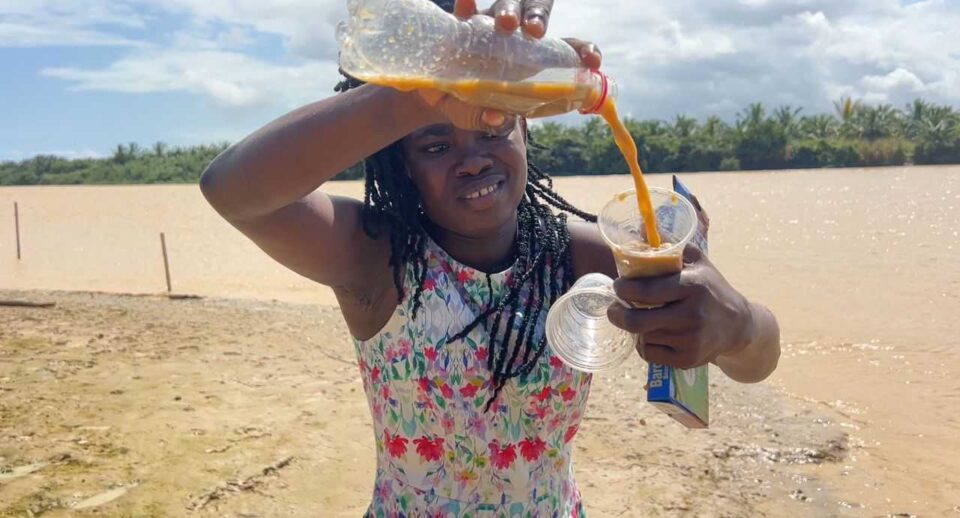Bosomdo, a rural farming community in the Shama District of the Western Region faces a severe water crisis. With a population of approximately 500, residents rely heavily on the polluted Pra River. The river is contamination by upstream illegal mining activities.
It is 6:30 am here in the Bosomdo, school-aged children collect water from the polluted river for their families and personal use, including bathing for school. Teachers also depend on the river for daily activities but must wait two days or more for the water to settle due to high pollution levels.
The Teachers say it’s a daily struggle access clean portable water. According to Prince Bawiah “The water quality here is extremely poor, as we solely rely on the Pra River, located just behind our school, as our only source of water.”
Madam Sodaha, the Healthcare Coordinator at Bosomdo D/A Primary School, expressed concern: “Taking children to collect water is heartbreaking, knowing it’s contaminated with chemicals. As a mother, I empathize with their plight. While teachers use sachet water, many parents cannot afford it for their children.”
Abigail Amuzu, a teacher at Bosomdo, shed light on the community’s water struggles. “Water fetched by children is stored in tanks and treated with alum, but the result is startling. The liquid retains its murky hue, even after 48 hours of settling. This stark reality debunks the assumption that alum can adequately purify polluted water,” she said.
According to her, they spend approximately 50 cedis on sachet water every week.
“The subpar water quality hinders everyday tasks. We rely on sachet water for laundry, particularly whites, as river water leaves stubborn stains. This adds 50 cedis to our weekly expenses.”
Abigail Amuzu reveals many teachers refuse posting here due to the water challenges in the community.
“The dire water situation is driving teachers away from this community. Of the six initially posted, four were deterred after witnessing the poor conditions, leaving just two to provide education to deserving children.”
The Bosomdo teaching staff who need urgent assistance for potable water strongly supports banning small-scale mining, citing its harmful impact on local water sources.
“I wholeheartedly support this initiative, having personally experienced the devastating effects of polluted water.”
“Putting jokes aside, the reality of Galamsey is devastating. If you think it doesn’t affect you, you’re mistaken. We’re all consuming, cooking, bathing, and drinking from the same polluted sources”.
“This is the water being filtered for our consumption. It’s time to wake up and collectively say no to Galamsey. I thought it was a joke at first, but the harsh truth hit me – this is our drinking water.”


